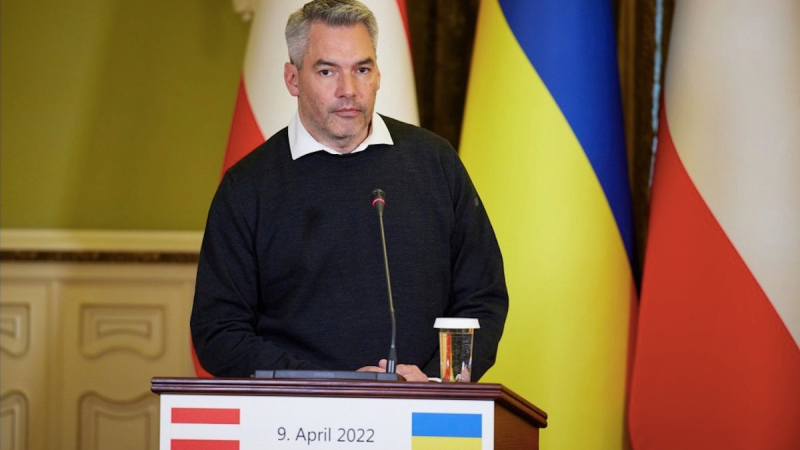
Karl Negammer became a bad news messenger for Putin/Office of the President of Ukraine
You don't have to be a jackass to understand why Austrian Chancellor Nehammer came to Moscow?
The gas issue
Austria is the most dependent on Russian gas EU country, which is a kind of hub not only for Russian gas in the EU, but also for Moscow's political influence.< /p>
Europe really depends on Russian gas and will not be able to refuse it either this year or next.
However, this dependence is not of an infernal-mystical nature, such as, for example, the dependence of the Russian elites and the population on Putin. This is a matter of investment, albeit a very large one. However, if they are made, then this reversal will become almost irreversible.
Actually, this, apparently, was what Nehammer came to talk about. As the leader most interested in Russian European gas, he should have brought arguments from Moscow to prevent or delay EU long-term investment decisions and strategies to replace Russian gas in European markets in the medium term.
Putin's grail
Putin's grail
h3>
h3>
The scheme of Russian gas supplies to Europe, the development of which began in the second half of the 1960s, is the most successful project of the late Soviet economy and the main contribution of Leonid Brezhnev to the history of Russia.
This scheme has existed for more than 50 years, the Soviet people owe it to a certain extent for the relative prosperity of the 1970s, it softened the consequences of the collapse in the 1990s and made a significant contribution to the economic growth of the 2000s. It has also become a kind of fetish for Putin and Putin's oligarchs, gradually transforming in their minds into a mystical grail and an ax of war.
Historical event
In this sense, yesterday's talks in Moscow were of historical significance for Russia, despite the exceptional modesty of their coverage in the press. If Europe refuses Russian gas over the next few years, then it will be impossible to reorient it to other markets, this will require the construction of infrastructure, unthinkable under sanctions. That is, we are talking about the irreparable losses of Russian foreign trade over the course of decades.
All this does not mean that Nehammer's words that the main content of the conversation was the achievement of peace, humanitarian aspects and the issue of war crimes of Russian troops in Bucha are not true.
It was the crimes in Bucha that became a turning point in European public opinion and turned talk about the refusal of Russian gas from an activist agenda into a political mainstream. , Putin recounted to the chancellor Vladimir Solovyov's latest programs from Channel One: about reviving mannequins, that's all (I wonder which ministers and generals Vladimir Putin will arrest the next time it turns out that the information he gleaned from Channel One's programs again are not true). Nehammer made it clear that he came with an empty pocket.
So, we are most likely present at some kind of anti-gas deal, drawing a line under the mechanism of relations between Russia and Europe, which has existed for more than half a century.

